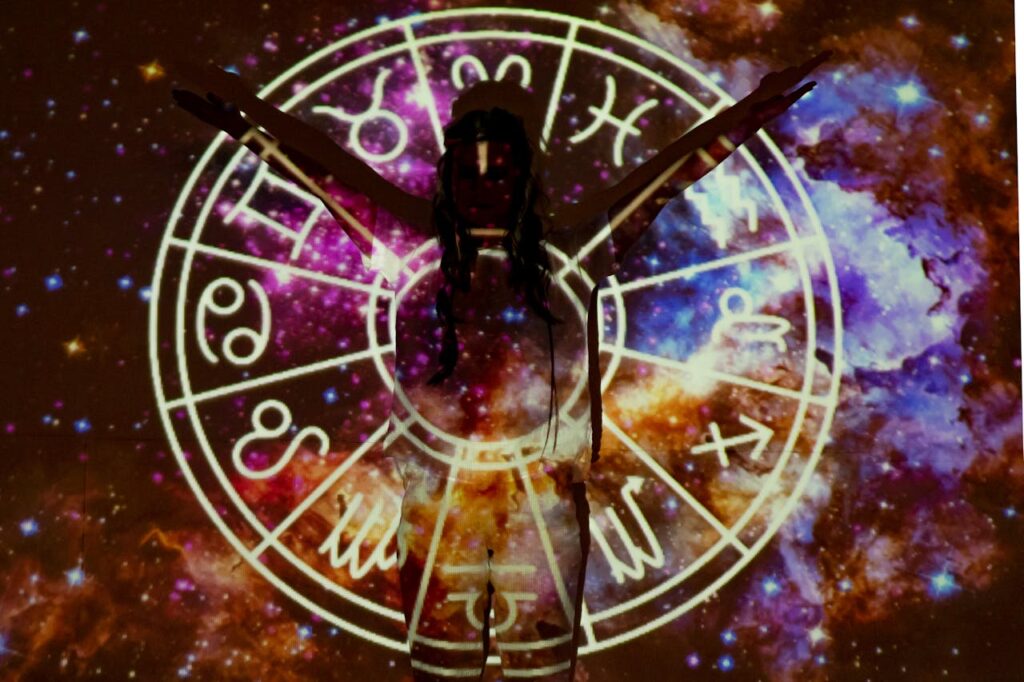Your cart is currently empty!
The Scientific Evidence Behind Horoscope Compatability – And People You Need to Stay Away From

Astrology has long fascinated us, especially when it comes to finding answers about love and compatibility. For centuries, the zodiac signs have been consulted to gain insights into relationships, with many believing that certain pairings have an innate harmony, while others are naturally fraught with tension. But what if there’s more to astrology than meets the eye? Could there be a scientific angle that bridges these celestial beliefs with modern psychological principles?
Surprisingly, psychology and astrology aren’t as far apart as they might seem. Beneath the surface, both fields delve into personality, behavior, and interpersonal dynamics, offering unique perspectives on why we connect well with some people and struggle with others. This blend of cosmic and psychological understanding allows for a deeper look into how and why we relate the way we do.

The Draw of Astrology in Our Lives
Astrology has fascinated people across cultures for millennia, offering a way to understand personality and predict compatibility. This ancient practice invites individuals to explore their identity through the lens of their zodiac sign, grouping people by birth dates and associating each group with unique traits and behaviors. Many find a sense of belonging and self-understanding in the characteristics assigned to their sign, which can serve as a tool for self-reflection. Interestingly, psychology explains this tendency through what is known as the “Barnum Effect”—the phenomenon where people see vague, general statements as highly accurate descriptions of themselves. This effect helps explain why people so often resonate with horoscopes, even when they are broadly written to apply to a wide audience.
From a psychological perspective, astrology’s allure also stems from its structured approach to categorizing personality. People tend to look for patterns and order, especially in understanding complex topics like human behavior. The zodiac’s twelve signs provide an accessible framework that organizes personality types, making it easier to understand oneself and others. For instance, knowing that a friend is a “Pisces” or a “Sagittarius” offers a shorthand for interpreting their actions and reactions, even if it’s not always scientifically proven. By attributing specific traits to each sign, astrology adds a layer of predictability that can be comforting, especially when navigating relationships.
Astrology’s appeal isn’t just about self-knowledge; it’s also about connection. Many people use astrology as a guide in relationships, believing that certain signs naturally harmonize while others clash. This belief offers an added layer of insight into why people get along—or don’t. Whether used as a social icebreaker, a tool for understanding, or a way to explore compatibility, astrology provides a shared language for discussing personality and relationships. While it may not replace psychology, astrology’s popularity highlights an innate human desire to categorize, connect, and comprehend the people around us in a way that feels both personal and universal.
Astrology as a Tool in Psychology Education
In an unexpected twist, some psychology departments, such as those at the University of Cincinnati, use astrology as a learning tool for students in introductory courses. By using astrology in research methods classes, educators are able to teach students how to develop hypotheses, understand human behavior, and assess probability and statistical significance. This is particularly helpful in psychology, where students need to learn how to separate correlation from causation and to test theories objectively. Astrology’s structured nature makes it a perfect exercise in critical thinking and hypothesis testing, giving students a relatable, engaging entry point into complex scientific concepts.
The use of astrology as a teaching tool also encourages students to critically evaluate information and recognize cognitive biases, including the aforementioned Barnum Effect. By exploring why people find astrology meaningful despite its generalizations, students learn to analyze how people interpret data that supports their personal beliefs. This process enhances their analytical skills, helping them apply objective reasoning when evaluating psychological studies and theories. Additionally, students learn to look at patterns in human behavior while understanding that personal bias can often color how people interpret those patterns.
This teaching method highlights an interesting parallel between astrology and psychology: both aim to understand human nature and behavior, albeit through different approaches. Astrology can be seen as a type of prototype for more rigorous psychological testing, acting as a relatable, accessible way to introduce students to research principles. By examining why people resonate with their astrological descriptions, students gain insight into broader psychological concepts like identity, personality, and the human tendency to find meaning in patterns. In this way, astrology serves as a bridge between ancient beliefs and modern scientific inquiry.

Astrology and Humanistic Psychology
Humanistic psychology, a field focused on human potential, creativity, and self-actualization, shares intriguing overlaps with astrology. This branch of psychology is rooted in the belief that people are driven by an innate desire for growth and self-fulfillment, which aligns closely with astrology’s emphasis on self-discovery and personality. Humanistic psychology suggests that understanding our strengths, weaknesses, and motivations can lead to a more fulfilled life, which is a core tenet of astrology as well. Dane Rudhyar, a prominent figure in this field, argued in his work, “The Astrology of Personality,” that astrology should be seen as a tool for personal growth rather than prediction, suggesting that it can bring order and meaning to our lives.
Rudhyar’s perspective reframes astrology as a means of enhancing self-awareness rather than predicting future events. According to his theory, astrology offers a way to align personal aspirations and tendencies with a broader, cosmic context, helping individuals make sense of their experiences and choices. He argued that astrology and psychology are both tools for understanding one’s place in the world. This perspective turns astrology into a system for personal development, aligning well with humanistic psychology’s mission to help people realize their potential. For many, this interpretation of astrology as a reflective tool rather than a predictive one deepens its relevance in today’s self-improvement culture.
The historic link between astrology and psychology is also worth noting. Many of the earliest scientific theories about the world originated from astrological observations. Human curiosity about the stars led to the development of many scientific fields, including astronomy and eventually psychology, which also seeks to uncover hidden aspects of human nature. The ancient practice of astrology laid the groundwork for observing patterns, a practice that is central to psychological research. Today, as astrology and psychology increasingly intersect, this history adds depth to our understanding of both fields and how they can complement each other in fostering self-awareness and growth.
Carl Jung’s Influence and the Four Elements
Swiss psychiatrist Carl Jung, one of the pioneers of modern psychology, found a notable connection between astrology’s elements—Earth, Fire, Water, and Air—and his own theories of personality. Jung proposed four primary psychological functions: thinking, feeling, sensation, and intuition. These functions formed the basis of what became one of the most popular personality assessments, the Myers-Briggs Type Indicator (MBTI). Each function aligns with one of astrology’s elements, offering an insightful bridge between the two systems. Jung’s theory suggests that people are guided by these core psychological traits, which can impact relationships and compatibility.
The concept of the four elements in astrology provides a framework for understanding different personality types. For instance, Earth signs (Taurus, Virgo, Capricorn) are often associated with practical, grounded qualities, much like Jung’s “sensation” type, which focuses on tangible, observable details. Fire signs (Aries, Leo, Sagittarius), aligned with intuition and action, share similarities with Jung’s “intuition” type, which emphasizes innovation and forward-thinking. These elemental archetypes offer insight into how people perceive the world, make decisions, and relate to others, making both Jung’s theories and astrological signs useful tools for self-reflection and understanding interpersonal dynamics.
Jung’s alignment with astrology deepens our understanding of personality, showing that our actions and relationships are influenced by underlying tendencies that astrology can help us recognize. For instance, Fire signs might gravitate toward energetic relationships, while Water signs (Cancer, Scorpio, Pisces), with their focus on emotion, may value deep, empathic connections. Astrology, therefore, can offer insights into why certain relationships flow effortlessly while others may feel challenging. By connecting Jung’s psychological functions with astrological elements, people can gain a broader understanding of compatibility, highlighting not only the strengths but also potential areas for growth in their relationships.
Transpersonal Psychology and Cosmic Connection
Transpersonal psychology, sometimes called “spiritual psychology,” merges traditional psychology with spiritual elements, including altered states of consciousness and mystical experiences. This branch of psychology explores connections that go beyond individual identities, considering broader cosmic influences that impact human behavior and beliefs. Practitioners in this field examine how celestial events—like planetary alignments—might correlate with human psychological trends over time. Transpersonal psychology broadens the scope of human experience, integrating scientific and spiritual perspectives to understand consciousness on a larger scale.
A fundamental principle of transpersonal psychology is the idea that people are influenced by forces beyond their immediate environment. This idea aligns with astrology’s emphasis on cosmic influence, suggesting that planetary movements could be a factor in shaping personality and behavior. Transpersonal psychologists may study how significant astrological events, like lunar cycles or planetary transits, have historically aligned with shifts in collective behavior or mood. This approach challenges more materialistic views of psychology, adding depth to the discussion of how external cosmic factors might play a role in shaping our personal journeys.
By linking psychological and spiritual elements, transpersonal psychology offers a new perspective on the human experience, one that resonates with astrology’s holistic view of personality and fate. Together, they provide a framework for understanding how our individual experiences may be connected to larger, universal patterns. This connection allows people to see their lives as part of a greater whole, offering a sense of purpose and belonging. For those who believe in astrology, transpersonal psychology provides scientific support for the idea that cosmic forces might subtly shape the course of human lives, offering new ways to understand one’s choices, motivations, and role in the universe.
